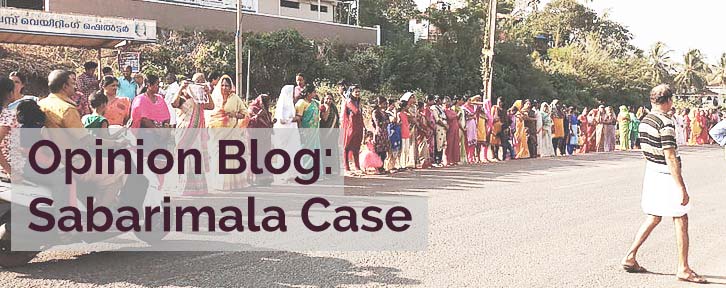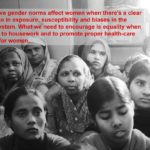With what’s been happening with the Sabarimala Temple verdict, let’s take a minute to look at the details and understand what has been happening with this case of women’s rights.
Sabarimala Temple is a Hindu temple dedicated to Lord Ayyapa, situated in the Pathanamthitta District, Kerela, India. The establishment of the temple and the worship of Lord Ayyappa is shrouded in legends ranging from the fact that people believe Ayyappan to be celibate. It is believed that Lord Ayyappan was born to defeat a demoness Mahushasuri, who had possessed and cursed a young woman to live the life of a demon until the Shiva and Vishnu’s child defeated her in battle. Ayyappan, the son of Shiva and Mohini defeated the evil demoness and she turned into a beautiful young woman. When this young woman insisted on marrying her savior, Ayyappa refused her hand in marriage in favor of his mission to go to Sabarimala and dedicate his life to answering the prayers of his devotees. But due to her insisting on the marriage, he promised to marry her the day kanni-swamis (new devotees) would stop visiting him at Sabarimala.
Coming from this legend of celibacy and the larger stigma around women’s right to devotion so Lord Ayyappa can live his life as a Brahmachari without female interference, the Kerala High Court banned entry of women between ages 10 and 50 from offering prayers at Sabarimala. In 1991, when S. Mahendran started the petition based on the fact that young women were entering the temple, enforced by the Kerala Hindu Places of Public Worship Rules act of 1965. What has to be highlighted here is that the entry was restricted only for women between ages 10 to 50, menstruating women. The Court themselves were quoted saying that the prohibition was not on the basis of class amongst Hindus, but for particular age group.
The 1991 verdict cemented the taboo that our society has carried about menstruation. The fact that menstruating women are not allowed to enter temples is not something that is restricted to just Sabarimala. The general ideology of a menstruating woman being impure has not just been reproduced over time, it has also led to discrimination at work, home, access to food, access to public spaces and their right to medication. What makes the Sabarimala case more astonishing is the fact that the Court let women’s right to purity and worship be judged on the basis of biology, but there is no test for men.
The counter to this decade old rule came in 2006, when women petitioned the Supreme Court to lift the ban. This verdict was passed last year when the Supreme Court ruled that women of all age groups can enter the temple “We have no hesitation in saying that such an exclusionary practice violates the right of women to visit and enter a temple to freely practice Hindu religion and to exhibit her devotion towards Lord Ayyappa. The denial of this right to women significantly denies them of their right to worship.”
What is evident is that not only does this practice was a violation of constitutional rights, but is also blatant gender discrimination based on the myth of menstrual pollution. When the petition was passed by Supreme Court, they were met with huge backlash, especially from the priests and local political parties, stating that the old-age custom must be upheld. Only two women managed to enter the temple with the help of policemen, but they were attacked and one of them had to be hospitalized after she was attacked by her own family.
Based on the rampant misogyny and restrictive gender-roles that India has spread amongst its people, the idea of purity is solely dependent on a 41-day purification period and that menstruating women cannot actually complete it because of their monthly cycles. Whether the Supreme Court should review its decision and now its referral to a larger seven-judge bench had the Court say that this would be a fresh opportunity to present the case and that restriction is not limited to Sabarimala and is prevalent in other religions.
What could have been an opportunity to rule for equal rights and end the age-old stigma of discrimination based on biology, has now been delayed for a bigger table to judge and ponder about. The case itself has met conflicting reviews from women themselves stating that they would wait till they can actually achieve the purification, to people believing that the Court should judge on the basis of the legal problems underlines, to religious fanatics demanding no-entry for menstruating girls, to the Court cannot interfere because this is a particular temple with its own particular ways of worship.





